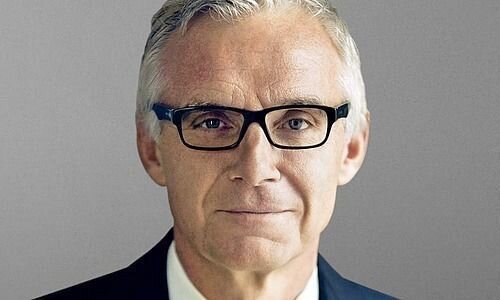A mega-merger of UBS and Credit Suisse is the hottest rumor in finance. The respective chairmen are indulging in a game of hot potato, late in their respective tenures.
First, float the idea, then backpedal, before torpedoing it all together – that's how UBS chairman Axel Weber's (pictured below) handling of a purported outline to merge with Credit Suisse dubbed «Project Signal» can be summarized.
The news ignited Paradeplatz when it was reported that Weber had even spoken to his Credit Suisse counterpart, Urs Rohner, about the project. Weber subsequently denied knowledge of the explosive idea, though so many specifics had emerged in press reports that his denials were difficult to believe.
Handover Imminent
Now it is Rohner's turn, in a wide-ranging interview with Swiss outlet «CH Media» (behind paywall, in German) four months before he exits. «One can absolutely pose the question of such a merger,» said Rohner, who hands over to Lloyds CEO António Horta-Osório in April. It sounds very much like Rohner is fine admitting Credit Suisse has also mapped out the pros and cons.

Years More Discussing
This led Weber to tell «Bloomberg» on Monday that mergers like a mega-deal between Switzerland's two largest banks would be «very, very hard to implement.» He added that he doesn't expect a major Swiss deal at the current juncture. I think this will be things discussed for years to come before we see any concrete movement.»
He noted that UBS has of course just appointed a new CEO, Ralph Hamers, five weeks ago, while Credit Suisse is poised for its handover and he – Weber – was also nearing the end of his tenure. The time simply isn't right to think about negotiating a major deal, Weber cautioned.
The last, ironic point is a bullseye – and it's what makes the presidential game of ping-pong so ludicrous. Rohner is out in April and Weber has another year before he glides out – effectively, both are lame ducks, neither have the time nor inclination to get something started, much less the largest banking merger Switzerland has ever seen (nor had either apparently thought to raise the issue previously).

Cementing A Legacy?
Weber, of course, would have loved to have fashioned UBS into a European champion and went as far as to draw up a wish-list of cross-border deal candidates. The former Bundesbanker may also have been keen to leave a major legacy on his eight-year tenure overseeing the Swiss bank.
Instead, his remaining 16 months in the job are likely to be filled with long-running legal tussles like a French tax and money laundering case, or UBS' handling of residential mortgage-backed securities in the U.S. in the run-up to the financial crisis.


























